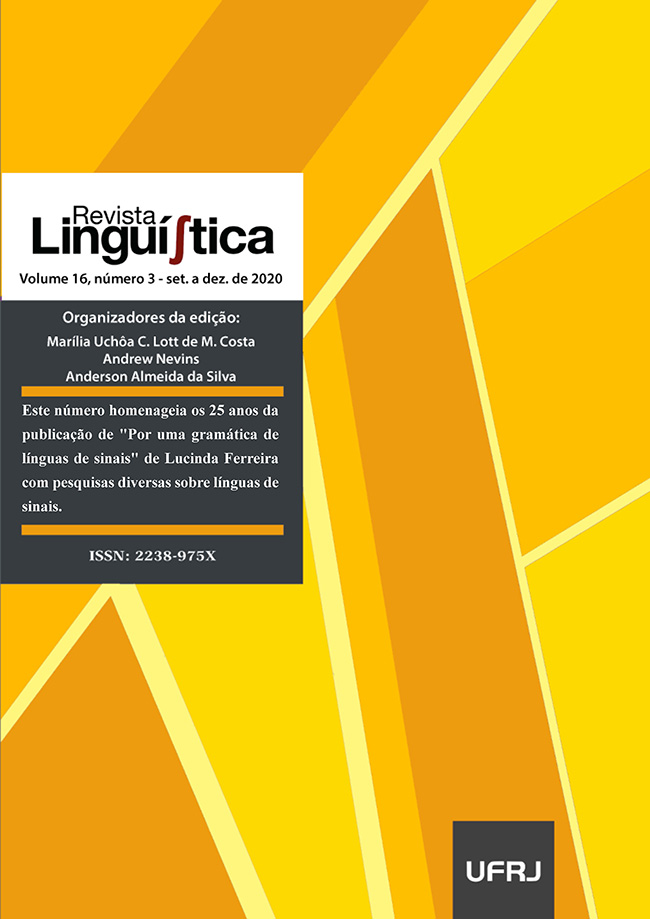Slang expressions in Brazilian Sign Language and its contexts of use
DOI:
https://doi.org/10.31513/linguistica.2020.v16n3a36958Keywords:
Slangs. Resistance. Group vocabulary. Palmas (Tocantins).Abstract
This article presents research about use of slang by a group of deaf people in the city of Palmas, Tocantins, who interact through the social network WhatsApp. In this research, we surveyed nineteen slang terms and described the profile of the participants, the rules for maintaining the group and the process of creating these signs. The theoretical and methodological support used for this study was from the authors Preti (2000a; 2000b; 2003; 2013) and Murata (2008), about slang as a language of resistance, opposition and protection. In the group, the exchange of information takes place in libras (video) and there is no participation by hearing participants. According to the participants, slang appears as forms (i) of entertainment and humor, in an environment in which they are at ease in relation to the language and themes covered, (ii) resistance, in opposition to the negative experiences facing the majority society and (iii) protection and confidentiality, in front of signing hearing and other deaf members in the deaf community. Slang expressions are categorized into (i) new signs, (ii) signs with modified parameters (hand configuration) to express intensity, (iii) signs with modified parameters (palm orientation) to indicate irony and (iv) signs with modified parameters (point of articulation) to highlight the gestural- visual modality of sign languages. The survey results also indicate that the process of creating slang signs involves the lexicalization of gestural actions, giving rise to highly iconic signs, and involves changing sub-lexical units, characterizing the parameters as phono-morphemes.
Downloads
Additional Files
Published
Issue
Section
License
Authors who publish in the Revista Linguí∫tica agree with the following terms:
The authors maintain their rights, ceding to the journal the right to first publication of the article, simultaneously submitted to a Creative Commons license permitting the sharing with third-parties of published content as long as it mentions the author and its first publication in the Revista Linguí∫tica.
Authors may enter into additional agreements for the non-exclusive distribution of their published work (for example, posting in online institutional or non-profit repositories, or book chapters) so long as they acknowledge its initial publication in the Revista Linguí∫tica.

The journal Revista Linguí∫tica is published by the Post-Graduate program in Linguistics of UFRJ and employs a Creative Commons - Attribution-NonCommercial 4.0 International (CC-BY-NC).









